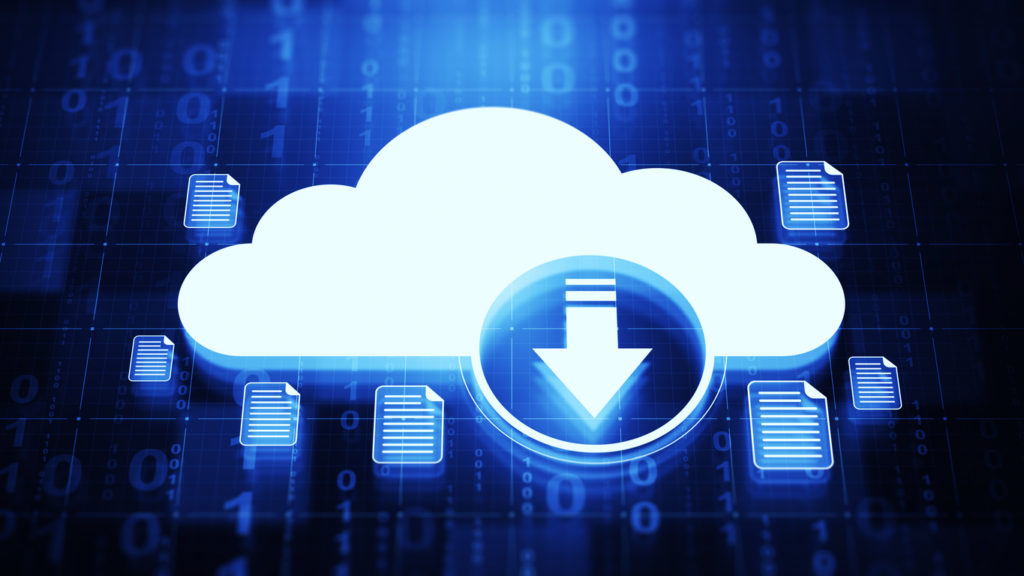While running a business, choosing between on-cloud and on-premise storage can be quite a challenge. First, before you opt for any of the two, you should understand the business operating environment well. So, which storage model should you adopt for your business? Well, your preferred model will depend on your prevailing business needs. However, your available resources might also dictate the model of storage to adopt.
This guide will analyze cloud and on-premises storage infrastructures to know their meaning, benefits, and differences to help you choose an ideal storage model for your small business.
Understanding On-Cloud and On-Premises Infrastructure
Many small businesses face a challenge when figuring out where to store their business data.
What Is On-Cloud Storage?
With cloud storage, a third-party service provider hosts your data on their servers. The cloud service provider acquires, installs, and maintains all software, hardware, and supporting infrastructure at its data center. Your business accesses these services via a managed account over the internet from various devices.
What Is On-Premises Storage?
On-premises storage means that a business hosts its server within the organization’s infrastructure and is physically onsite. The server is procured, administered, controlled, and maintained by the organization’s in-house team or a third-party vendor. Data and resources sharing is via a local network.
Advantages and Disadvantages of Cloud vs. On-Premises Cloud Storage
Small business owners will often find it challenging to choose the best storage infrastructure to suit their business model.
As a fact, investors should be diligent in choosing the right storage infrastructure that works best for the business. Below is an in-depth comparison between cloud and on-premises storage. Interestingly, the comparison comprises both the pros and cons of the two storage models:
Cost and Maintenance
Costs and maintenance will define the viability and sustainability of a small business. Therefore, the decision-making process comes down to the actual cost incurred when implementing a new system.
On-Cloud Storage
A business does not invest in the expensive infrastructure required compared to onsite storage with cloud storage. The cloud service provider offers your business all the infrastructure needed at an annual or monthly subscription rate, depending on your usage. More so, they maintain, update software, security and offer support when needed.
A small business running on a cloud server saves resources that will cater for the purchase of servers, floor space, cooling, electricity, and support staff.
On-Premises Storage
The organization invests valuable resources in purchasing infrastructure, installation, maintenance, software licensing, data backup, hardware and software updates, office space, and support staff or third-party service providers to run and manage the system.
Your business will cater for all the expenses incurred while running on-premises storage. It’s a significant disadvantage for new and upcoming small businesses. Nevertheless, the organization will not pay monthly subscription fees and internet bandwidth bills for cloud-based services.
Security
Security is a critical issue that affects both cloud and on-premises storage and takes center stage. Many IT specialists believe that applications that run essential data should be on-premises.
Here are the pros and cons for both in terms of security.
On-Cloud Storage
According to Gartner, public cloud services undergo 60 % fewer security incidents than on-site data centers.
Cloud service providers offer multi-layered security with the following features to protect your data:
- Access control systems
- Data encryption; at rest or in transit
- Threat monitoring
- Physical data center security
- Network and application security
- Continuous data validation
- Data redundancy
- Login and suspicious activity monitoring
With cloud storage, a team of security experts is always on standby to safeguard the business data and assets 24/7.
On-Premises Storage
Businesses that stick to on-premises storage feel more control over their data and assets. They have no third-party vendors to compromise with their data, limiting data access to the chosen few. However, they bear the following responsibilities; cost of setting up security systems, including firewalls, access control, and encryption, monitoring, maintenance, support staff, and security experts.
Reliability
Reliability is a critical factor when deciding where to host the organization’s servers. First, the servers need to be efficient and reliable to ensure smooth operations. Here are some factors to consider between the two.
On-Cloud Storage
Cloud storage operates on large bandwidth, needing a fast and reliable internet connection. Any internet downtime results in delayed operations and a slump in productivity, which is unsuitable for small businesses. Therefore, many businesses consider a backup internet connection to ensure access to cloud services.
On-Premises Storage
Many organizations prefer on-premises servers because they require no internet connection to access resources and applications. However, the server is accessible by on-premises employees, limiting access for offsite employees.
Remember that most employees have been working from home since COVID-19 struck, which is unreliable. Also, on-premises servers require power and storage backup, which are extra resources a small business must incur.
Compliance
Many organizations in the healthcare and financial industries are subject to compliance with various bodies like GDPR, HIPAA, and CCPA before licensing. Therefore, when choosing the desired storage mode for your business, ensure that it meets the required compliance.
On-Cloud Storage
Cloud service providers come in with experts in different industries with the required compliance certifications in other industries. These experts are stakeholders and are in regular engagement with global government regulatory bodies and non-governmental bodies when setting up compliance standards to be met by various sectors.
Always ask your cloud service provider if they meet the compliance requirements and demand a copy of the compliance certificates, or else your business will be liable.
On-Premises Storage
Your organization needs an expert who understands all the specified regulations before setting up onsite infrastructure to meet compliance. In addition, it gets costly, for the organization requires an in-house expert to monitor and encrypt data and resources to configure and maintain the systems to meet the requirements.
Your business is liable in case of any security breach and can be sued, for you own the servers, making it a costly affair.
Data Backup and Access

Loss is data is any business’s worst nightmare. So, how well is your business prepared for data loss? How is data accessed in your organization? According to a study, half of the companies are unprepared to recover from data loss.
These questions need answers; let’s look at what offers the best solutions between the two.
On-Cloud Storage
Third-party cloud service providers offer business data backups that come with the following features; in-built redundancy, automatic logging, failover, and monitoring with a quick recovery time.
With the cloud, storage data is accessible by any device from any location across the globe with internet access.
On-Premises Storage
The organization’s data is stored onsite on an internal server with on-premises storage. There is a risk of losing all your data in this set without backup. However, some organizations opt for an offsite backup to avoid data loss.
On-premises storage limits access to data. Since COVID-19 struck, most organizations have encouraged employees to work from home. However, this will not work well for a business running on-premises storage.
Learn More About On-Cloud vs. On-Premises Storage
At Avantech, we have an elite team to analyze and evaluate your business IT needs and offer comprehensive solutions to see your business grow by eliminating IT bottlenecks.
Contact us today to help focus on growing your business while we create cutting-edge tech business solutions for your business in the background.

